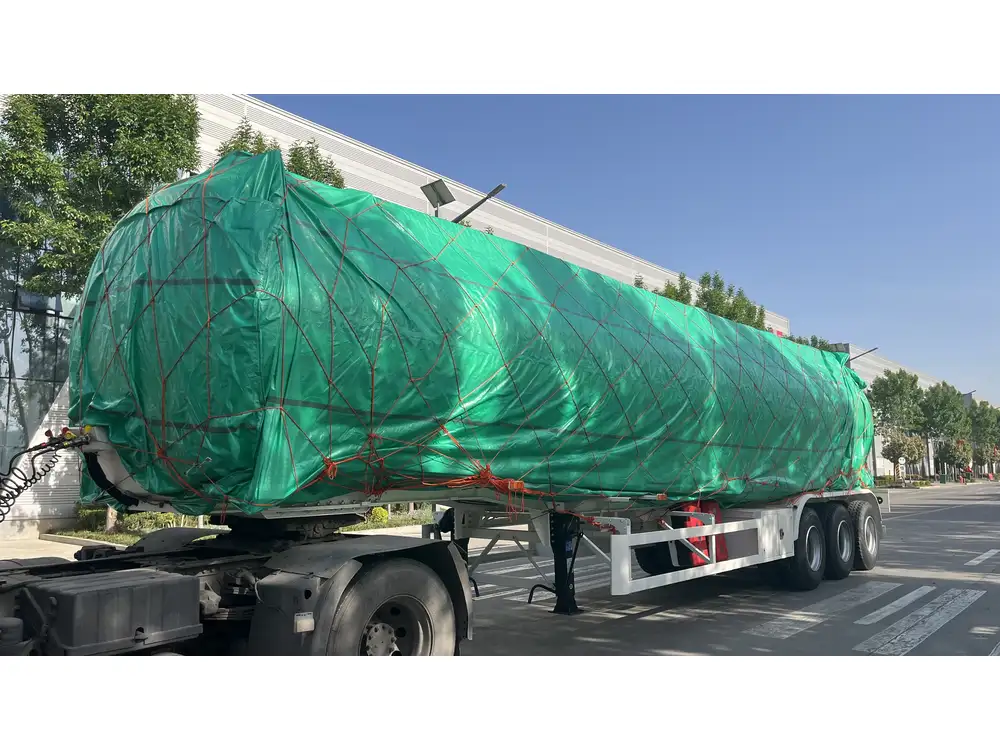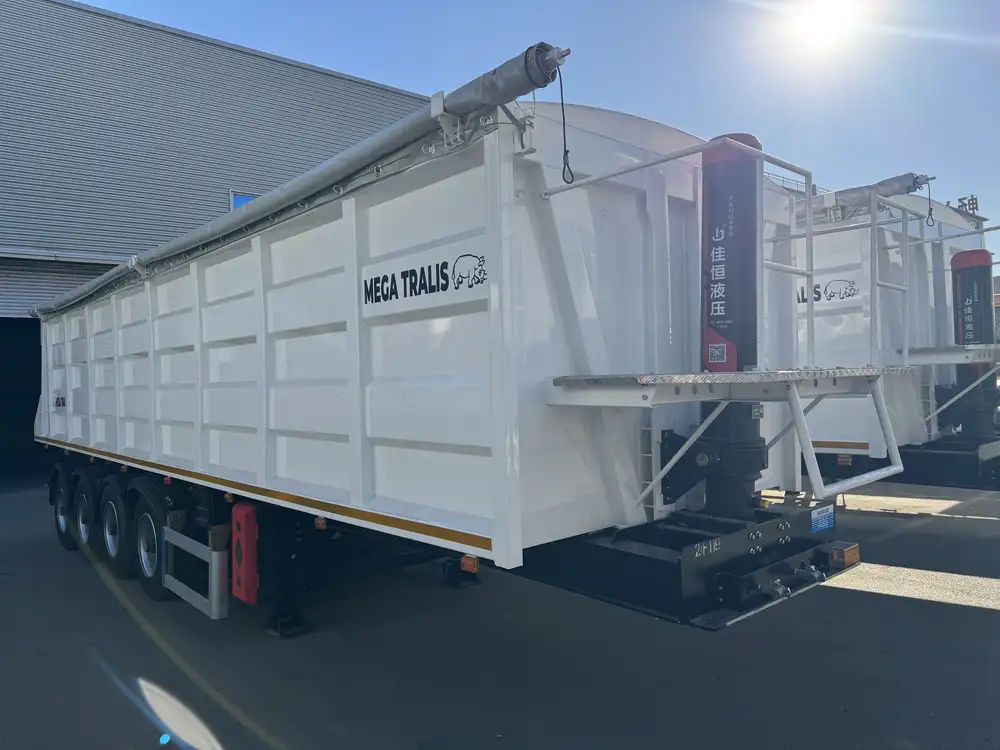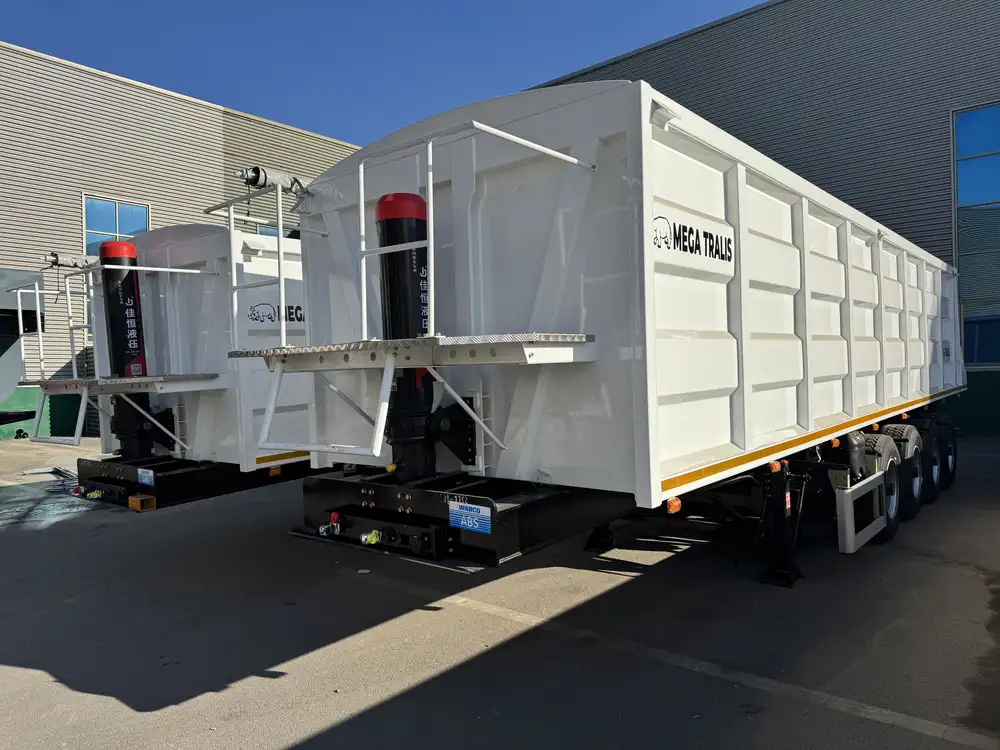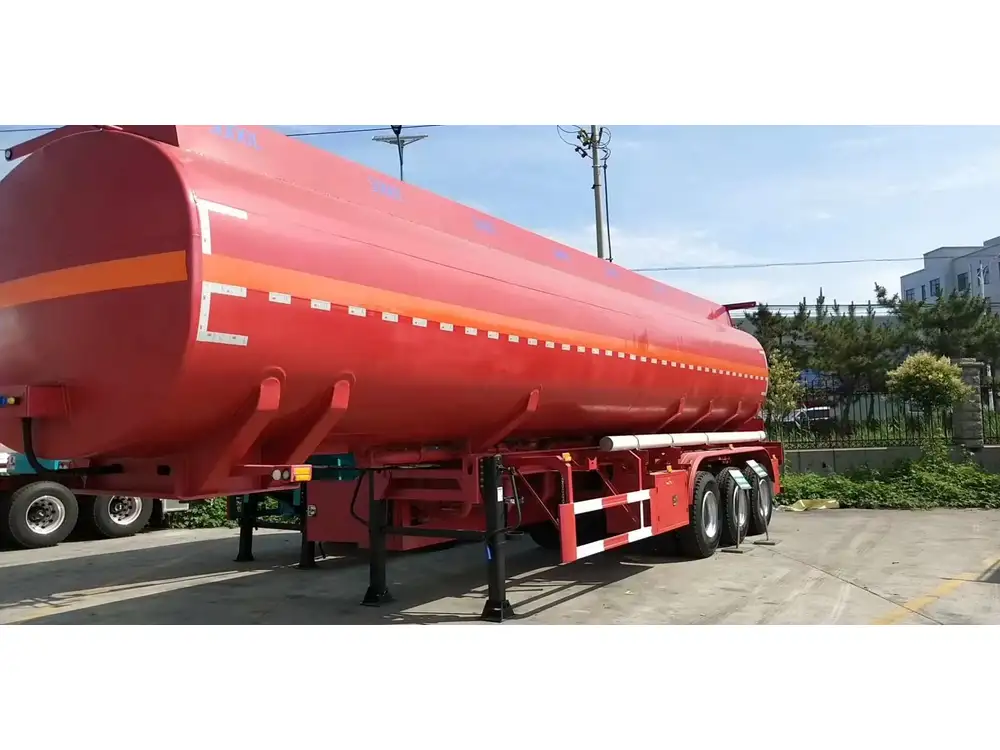In the realm of heavy-duty transportation, semi dump trailers play a vital role in efficiently moving bulk materials, whether it be in construction, agriculture, or waste management. Due to their utility, understanding their specifications, particularly weight, is essential for both manufacturers and users.
What is a Semi Dump Trailer?
A semi dump trailer is a type of trailer that is designed to transport loose materials such as sand, gravel, and dirt. Its distinguishing feature is the ability to elevate the trailer’s bed, allowing it to “dump” its load at the desired location. This functionality is powered by hydraulics that raise the trailer’s front, enabling a swift and easy unload.
Key Characteristics of Semi Dump Trailers
- Material Construction: These trailers are typically made from lightweight yet sturdy materials such as aluminum, steel, or a combination. The choice of material significantly affects the overall weight.
- Volume Capacity: Semi dump trailers come in varied sizes and designs, leading to differences in capacity, usually ranging from 14 to 25 cubic yards.
- Axle Configuration: Trailers can feature different axle configurations, from single axle to multiple axles, which impact both stability and weight.

How Much Does a Semi Dump Trailer Weigh?
Determining the weight of a semi dump trailer is intricate as various elements contribute to the overall weight. Generally, a semi dump trailer weighs between 10,000 to 30,000 lbs (or 4,500 to 13,600 kg). Understanding the weight breakdown is crucial for compliance with load regulations and to maximize the efficiency of transportation assets.
Average Weight Breakdown
| Component | Average Weight (lbs) | Percent of Total Weight |
|---|---|---|
| Trailer Frame | 3,500 – 5,000 | 35% – 45% |
| Axles and Suspension | 1,500 – 2,500 | 15% – 20% |
| Bed (Steel/Aluminum) | 2,500 – 5,000 | 25% – 30% |
| Hydraulics System | 1,000 – 1,500 | 10% – 15% |
| Additional Features | 500 – 1,000 | 5% – 10% |
| Total Weight | 10,000 – 30,000 | 100% |
Factors Influencing Weight
Material Choices:
- Steel vs. Aluminum: Steel trailers typically weigh more due to their density and durability, whereas aluminum trailers are lighter and offer the same structural integrity.
Design Specifications:
- Custom load designs may result in heavier builds equipped with enhanced features.
Axle Configurations:
- More axles add weight but increase load-bearing capacity, enabling the transport of heavier materials.

The Importance of Knowing Weight
Understanding the weight of semi dump trailers isn’t just a matter of curiosity; it holds several practical implications:
- Compliance with Regulations: Weight limits are strictly regulated for road safety and infrastructure protection. Overloading can lead to hefty fines and safety violations.
- Optimizing Load Capacity: Knowing the trailer’s weight helps in planning how much material can be loaded without exceeding legal limits, ultimately saving money on transportation costs.
- Fuel Efficiency: A lighter trailer can enhance fuel efficiency, crucial for operating costs, especially for businesses relying on frequent transportation.
Calculating Total Load Capacity
To calculate the total load capacity of a semi dump trailer, you must consider both the trailer’s weight and the maximum allowable weight on the highway, typically around 80,000 lbs for a fully-loaded semi-truck.
Formula for Total Load Capacity
[ \text{Total Load Capacity (lbs)} = \text{Maximum Allowable Weight} – \text{Trailer Weight} ]For instance, if you own a trailer weighing 15,000 lbs, your effective load capacity would be:
[ 80,000 \text{ lbs} – 15,000 \text{ lbs} = 65,000 \text{ lbs} ]
Common User Concerns Regarding Weight
1. What Happens If You Exceed Weight Limits?
Exceeding weight limits can lead to various legal and operational problems:
- Government Penalties: Hefty fines can be incurred if pulled over and found to be over the weight limit.
- Increased Wear and Tear: Heavier loads can accelerate tire wear, suspension issues, and braking problems, leading to costly repairs.
2. How to Accurately Weigh a Semi Dump Trailer?
Weighing a trailer accurately is essential to ensure compliance with regulations. Here’s how:
- Public Weigh Stations: Many areas have public weigh stations where you can easily check your weight for a small fee.
- Portable Weighing Systems: Investing in a portable trailer scale can provide convenience for frequent checks.

3. Choosing the Right Trailer Based on Weight
When selecting a semi dump trailer, consider the intended usage and material types:
- Lightweight Aluminum Trailers: Ideal for transport of less dense materials.
- Heavy-Duty Steel Trailers: Best suited for dense materials such as gravel and heavy waste.
Enhancing Efficiency with Proper Weight Management
Strategies for Reducing Weight
If you are in the market for a semi dump trailer, consider these strategies to reduce weight without compromising strength:
- Material Innovation: Utilize advanced materials like high-strength steel or reinforced composites.
- Streamlined Design: Work with engineers to optimize the design to remove unnecessary weight while maintaining structural integrity.

Monitoring Load Appropriately
To maintain efficiency and compliance:
- Regular Maintenance: Ensure all components are working efficiently to avoid added weight from malfunctions.
- Training Operators: Educate drivers and operators on the importance of knowing trailer weights and load limits.
Conclusion
The weight of a semi dump trailer is more than just a number; it is an integral part of logistics, compliance, and operational efficiency within the transportation industry. Understanding the factors influencing weight, how to measure and calculate total capacities, along with addressing user concerns lays the foundation for efficient management of semi dump trailers.
As a manufacturer of semi-trailers, we emphasize the importance of selecting the right product and maintaining a solid knowledge base on the specifications that govern their use. Adhering to best practices in weight management not only mitigates potential issues but also enhances business efficiency and safety outcomes.
Whether you are a fleet owner, an operator, or involved in the procurement of semi dump trailers, being informed about weight specifications and their implications is essential for informed decision-making in this crucial industry.



